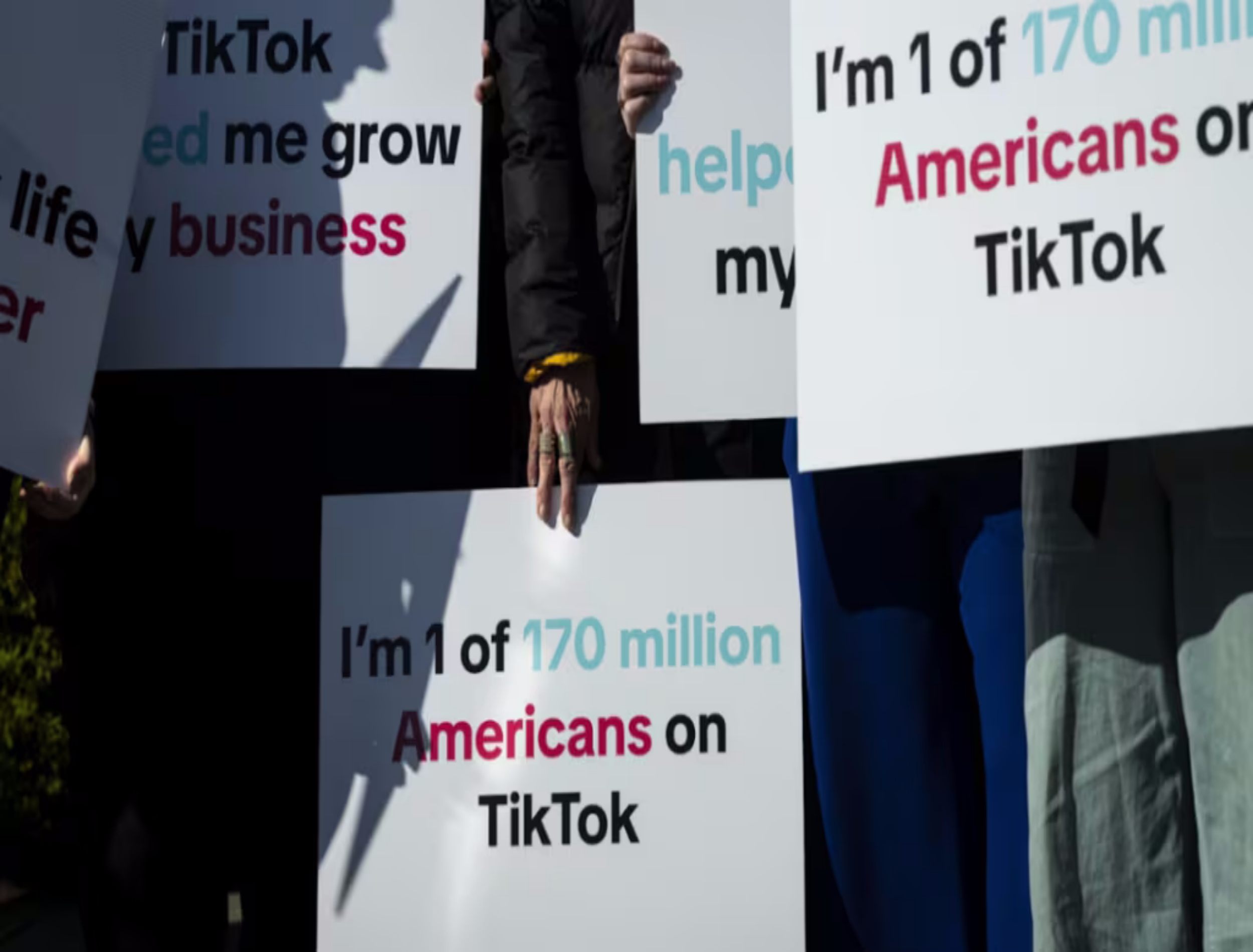
A group of TikTok creators and advocates held signs before a news conference outside the US Capitol in Washington, D.C., on March 12.GRAEME SLOAN/BLOOMBERG
TikTok is fighting back.
The popular video app and ByteDance, its parent company, filed a federal lawsuit this week against the US government challenging a recently passed law that would potentially ban TikTok in America.
Now we’ll see if the courts apply a rational basis to what has been an irrational political approach to regulating TikTok.
TikTok’s case represents a “very, very substantial First Amendment challenge,” a legal expert told The New York Times. Congress, the Chinese tech company alleges, took “the unprecedented step of expressly singling out and banning TikTok: a vibrant online forum for protected speech and expression used by 170 million Americans,” reads the opening paragraph of the lawsuit.
Of course, the First Amendment, which guarantees freedom of expression, is not all encompassing. However, TikTok already obtained a legal victory in US courts last November when it challenged Montana’s statewide ban on the platform. A federal judge in that case blocked the ban saying it probably violated the First Amendment.
Banning “every American from participating in a unique online community with more than 1 billion people worldwide,” as the lawsuit notes, feels … well, very un-American. It goes against fundamental American ideals like capitalism, freedom of speech, and free enterprise.
Plus, TikTok has already had a tremendous impact in the United States. Even if you have never used or downloaded the app, you have been influenced by it.
“Has there ever been an app more American seeming than TikTok, with its messy democratic creativity, exhibitionism, utter lack of limits and vast variety of hustlers?” Sapna Maheshwari of The New York Times recently wrote in an fascinating overview of the myriad ways TikTok has changed America.
”The music America listens to, the movies it sees, what conspiracies it believes, how it can make or break a product’s success, who it defines as a celebrity — all of it has been influenced by TikTok, for good and bad,” Maheshwari wrote.
As for TikTok’s lawsuit, some of the lawmakers who pushed and voted for a TikTok ban seem to be helping the Chinese-owned platform’s legal challenge, albeit inadvertently. Case in point: Last week’s comments by Republican US Senator Mitt Romney of Utah.
”Some wonder why there was such overwhelming support for us to shut down potentially TikTok or other entities of that nature,” Romney said in an exchange with US Secretary of State Antony Blinken. “If you look at the postings on TikTok and the number of mentions of Palestinians, relative to other social media sites — it’s overwhelmingly so among TikTok broadcasts.”
They’re saying the quiet part out loud — namely, that targeting TikTok is not about protecting the country’s national security from foreign governments. It’s mostly about propaganda, or controlling what users can see. Other lawmakers have rationalized their vote for the so-called TikTok ban law by claiming the platform is “brainwashing our kids” and that the law protects the mental health of teens.
Why single out TikTok, then? Why stop there? Why not target Instagram, which similarly harms youth’s mental health?
This is an excerpt from ¡Mira!, a Globe Opinion newsletter from columnist Marcela García. Sign up to get this in your inbox a day early.
文章来源:The Boston Globe
TKFFF公众号
扫码关注领【TK运营地图】

TKFFF合作,请扫码联系!







 闽公网安备35021102002035号
闽公网安备35021102002035号